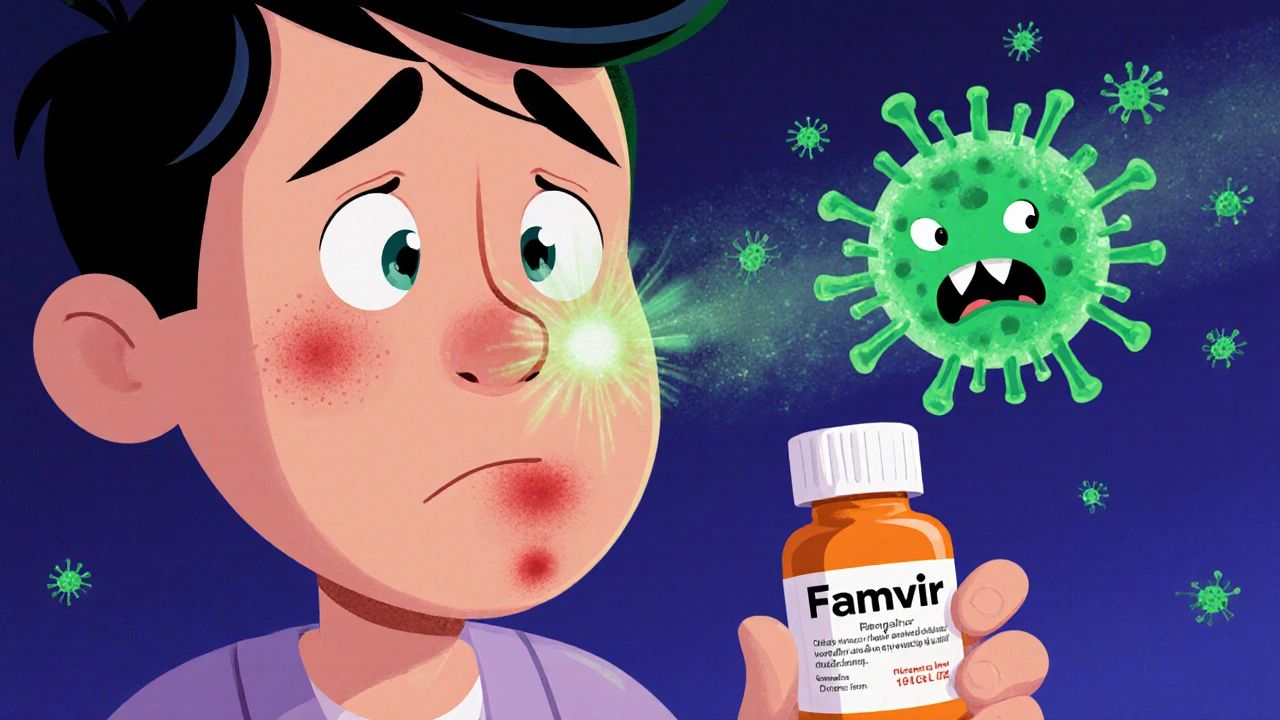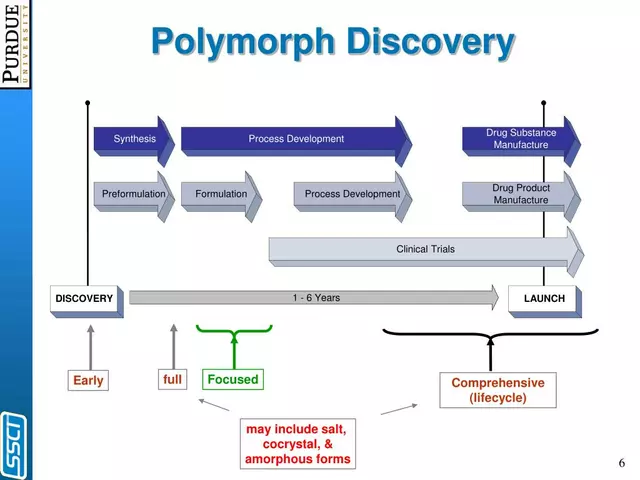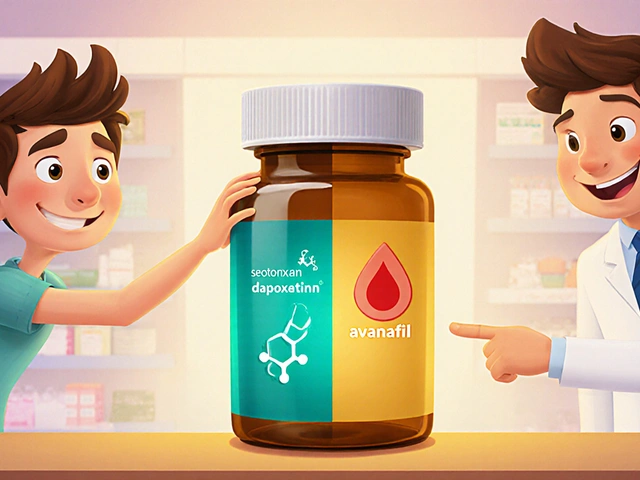Herpes treatment: quick, practical steps to manage outbreaks
Herpes (HSV-1 and HSV-2) is common and manageable. You don't need to panic when symptoms appear: most outbreaks are short and respond well to simple treatments. Below I explain the medicines that work, what you can do at home, and how to cut down future outbreaks.
Antiviral options that actually help
Prescription antivirals are the mainstay: acyclovir, valacyclovir, and famciclovir. Taken early—at the first tingle or redness—they shorten the episode and ease pain. For cold sores (HSV-1), topical docosanol (Abreva) can help if used right away, but prescription pills work better for faster recovery. For severe or widespread infections, or for people with weak immune systems, doctors may give IV acyclovir in the hospital.
Two common treatment plans: episodic therapy (take meds only during an outbreak) or suppressive therapy (a daily low dose to prevent outbreaks). Suppressive therapy suits people with frequent or severe recurrences, or when partners are at risk. Talk to a clinician about which approach fits your life and medical history.
Practical tips for outbreaks and everyday prevention
At-home care matters. For pain, use acetaminophen or ibuprofen and avoid tight clothing on genital sores. Keep the area clean and dry; use cool compresses for comfort. Don’t pick at blisters—this slows healing and raises infection risk. For cold sores, lip balms with sunscreen can reduce trigger risk from sun exposure.
Preventing spread is simple: avoid kissing or sexual contact during active symptoms, and use condoms between outbreaks (they reduce but don’t eliminate risk). If you or your partner are pregnant, mention herpes to your provider—delivery plans may change to protect the baby. Regular testing and open conversation with partners make a big difference.
If you notice longer-than-usual symptoms, high fever, severe pain, or signs the infection is spreading to the eyes or brain (blurred vision, stiff neck, confusion), seek urgent medical care. Also see your doctor if antivirals stop working—resistance is rare but treatable with alternative meds.
Finally, lifestyle tweaks help cut outbreaks: manage stress, get enough sleep, limit heavy sun exposure, and avoid known triggers like certain foods or illness. Keep a simple log of outbreaks and possible triggers; patterns often emerge that you can act on.
Herpes can feel scary at first, but with prompt antiviral treatment, smart self-care, and clear communication with partners and providers, it’s very manageable. If you need help choosing treatment or finding a pharmacy, talk to a clinician or pharmacist who knows your history and can guide you safely.

Famvir (Famciclovir) vs. Alternatives: What Works Best for Cold Sores and Shingles?
Compare Famvir (famciclovir) with acyclovir and valacyclovir for cold sores and shingles. Learn which antiviral works best based on cost, dosing, side effects, and effectiveness.

Aciclovir Uses, Side Effects, and Dosage: Your Complete Guide
Discover what Aciclovir does, how it works, when to take it, and what to watch out for. Essential guide for anyone dealing with viral infections.
Categories
- Medications (69)
- Health and Medicine (60)
- Health and Wellness (36)
- Online Pharmacy Guides (16)
- Nutrition and Supplements (8)
- Parenting and Family (3)
- Environment and Conservation (2)
- healthcare (2)
- prescription savings (1)
Popular Articles



